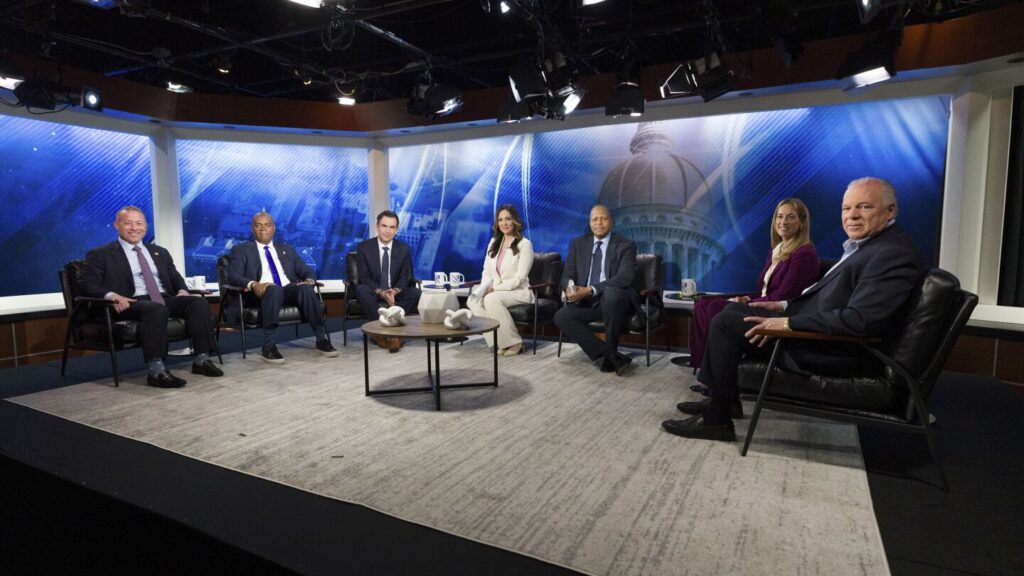New Jersey voters are gearing up to decide on the Democratic and Republican primaries for governor in a highly anticipated contest that holds significance beyond state boundaries. The race, set against the backdrop of President Donald Trump’s influence, is seen as a litmus test for public sentiment and Democratic strategies in pushing back against the current political landscape. The impending departure of two-term Democratic Governor Phil Murphy due to term limits has added a fresh layer of drama to the open seat, intensifying the stakes for the six-way Democratic race and the Republican contenders, led by former state lawmaker Jack Ciattarelli, who received Trump’s endorsement.
While local issues such as high property taxes and the cost of living are central to the campaign, national politics are undeniably woven into the fabric of the race. With Trump’s endorsement playing a pivotal role, both parties are vying for a winning message and leadership after recent electoral setbacks. The Democratic lineup boasts notable figures like Mayors Ras Baraka and Steven Fulop, as well as U.S. Reps. Josh Gottheimer and Mikie Sherrill, adding to the intensity of the campaign characterized by significant financial investments in media outreach.
On the Republican side, candidates have aligned with Trump’s agenda, advocating for state-level reforms reminiscent of the former administration. Ciattarelli’s pledges to reverse immigration policies and support Trump-related lawsuits underscore the alignment with the ex-president’s priorities. As New Jersey emerges as a battleground with a history of political oscillation in gubernatorial races, the outcome of these primaries carries implications for both parties looking to capitalize on voter frustration and reshape the political landscape.

